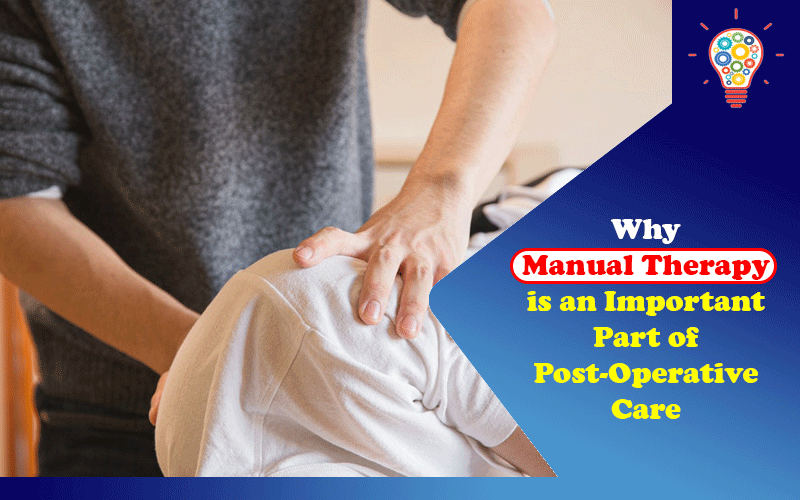Major surgeries are a big deal, and the impact they have on our body and how we function post-operation are often more than we realize. While many of us may look at physiotherapy, occupational therapy and other manual therapy services as only necessary for those that need to relearn certain skills post-op like walking, manual therapy actually plays an important role in post-operative care for most major surgeries.
Getting the support of a physiotherapy clinic like My Physio Sports & Rehab Centre after your operation can make a huge difference in how quickly you recover, but that’s not the only benefit to manual therapy post-op, manual therapy can also:
Table of Contents
Help to Manage Pain and Inflammation
Once your doctor and manual therapist deems it appropriate, starting with physiotherapy, massage or other recommended manual therapy can greatly improve postoperative pain and inflammation.
Various physiotherapy interventions have been proven to improve pain and quality of life for those who are post-op or have experienced persistent post-operative pain.
Your physiotherapist may guide you through gentle exercises, use laser treatments or joint mobilizations to help increase circulation and movement in the affected area. This improved movement can help with inflammation and pain at the site of the operation.
Increase Mobility and Flexibility
If you had surgery on an area that impacts your movement and flexibility such as your hip or knee, manual therapy can be incredibly important for regaining your mobility and flexibility. Physiotherapy, chiropractic and other manual therapies work directly on soft tissues and joint mobility, and when dealing with post-operative care, gentle joint mobilization and work on relieving muscle tension and restrictions can help you to recover more quickly and function better.
Focus on Strength and Balance
Post-operative care prioritizes regaining your strength and balance, especially when dealing with a surgery that impacts your mobility. Surgery can impact how your body moves, and interacts with itself – for example, if you’ve had a knee replacement chances are your body was used to compensating for so long that a properly functioning knee is foreign to how it usually understands movement.
Physiotherapy works to regain your strength and balance and in turn, makes you more aware of your body and how it works differently post-op. Through regular exercises you can rebuild your strength and in most cases, go back to doing everything you did before your surgery, or do things you haven’t done in years!
Help Prevent Secondary Issues and Scar-Tissue Formation
Scar tissue formation is a natural part of the healing process, but an excess of scar tissue can actually impede function. Manual therapy treatments such as massage, ultrasound, and soft tissue mobilizations can all help soften or minimize scar tissue allowing for proper mobility and flexibility.
Regular exercise and manual therapy can also help prevent the development of secondary issues such as blood clots or injury to other areas. Blood clots can develop from extended periods of immobility, such as being bed-ridden post-op. By having regular physiotherapy appointments where you work through gentle exercises and are given an exercise program you can easily do at home, you can reduce your risk of blood clots by being active within your limits during recovery. Additionally, secondary injury can occur if post-op, the patient is trying to compensate for their limited movement in one area by putting more strain on another area (think limping). With manual therapy, working to strengthen and mobilize the post-op area, you can regain function more quickly and avoid strain on other areas.
Educate You
Your manual therapy practitioner is a great source of information and education. If you want to know more about your surgery, recovery or what your movement and abilities may look like going forward, ask your practitioner. Their goal is to educate you on your health so you can be an active participant.
Your practitioner may also educate you on home care treatments that can help with the recovery process such as hydrotherapy, home exercises, taping, and more. With the right information, you can play just as important of a role in your post-operative care as your manual therapist.
Conclusion
Surgery can be life-changing, but the recovery process doesn’t have to be difficult. With the support of a physiotherapist or other manual therapy practitioner, you can greatly improve your recovery time and work to increase mobility, strength and prevent secondary issues from occurring. Manual therapy works to make sure that you are playing an active role in your health and that your life post-op is as pain-free as possible with the quality of life that you deserve.
Read Also: 4 Benefits of Regular Manual Therapy Appointments

